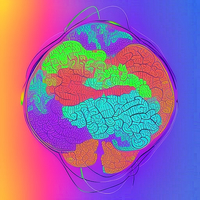
Article Topics.
ToggleWhat is AGI?
Artificial general intelligence, or AGI, describes a complex and sophisticated AI system that is so advanced that it can think, reason and formulate solutions just like us. If this becomes a reality, and many believe it will sooner or later, then the human race could be in serious trouble.
The creation of AGI entails formulating algorithms that can comprehend enormous amounts of data, learn from it, reason abstractly, and make judgements based on that reasoning. The objective is to build a more adaptable AI system that can operate alone or with minimal supervision across a variety of situations.
AGI intends to be adaptive in different work settings without requiring significant alterations, unlike current AI technologies that are specialized in particular applications like conversational bots and image recognition models.
The development of AGI marks a tremendous step in machine learning, opening the door for considerable improvements in areas like robotics, educational research, and healthcare delivery systems, among others.
However, when putting it into practice, it should take ethical considerations into account, including how it interacts with people, as their effects could be disruptive to society if not properly controlled.
AI ethics.
 Many experts working in artificial intelligence are becoming increasingly concerned about the potential effects of AGI on our society. Alarm bells are starting to ring.
Many experts working in artificial intelligence are becoming increasingly concerned about the potential effects of AGI on our society. Alarm bells are starting to ring.
Those troubled argue that we must carefully consider the advantages and disadvantages of AGI before implementing it widely, taking into account everything from job loss to ethical issues including autonomy.
By having serious conversations with subject-matter authorities, we may better comprehend the difficulties that lie ahead and cooperate to find solutions that put people’s well-being first.
Talking about the effects of AGI on the world is also an opportunity to foster interest in and education about a rapidly developing technology that will unavoidably influence our future.
We can only make sure that AGI development continues in ways that benefit society as a whole rather than pose unexpected concerns by openly discussing these problems.
Future of AI.
We are now faced with the realization that AGI could definitely challenge the human intellect in the areas of solving problems, creativity, invention and making decisions faster and more efficiently that the poor human.
Certainly, AGI is now active in many fields, including banking, healthcare, manufacturing, and transportation. It is proving its worth by processing enormous volumes of information in real time. Businesses may automate difficult operations, boost efficiency, and cut costs using AGI-powered solutions.
AGI’s advancement, however, poses moral questions about how technology will affect society’s work structure and privacy rights.
To guarantee that AGI is responsibly deployed in vital applications that benefit all of mankind, the development of AGI should encourage a transparency and cooperation among stakeholders.
Although AGI technology’s full potential may not be realised for some time, businesses cannot afford to ignore the advantages that could result from its eventual success.
Positive impacts of AGI on society.
 No one denies that AGI has many potential benefits for our society.
No one denies that AGI has many potential benefits for our society.
Automating complicated tasks that need human intelligence, like problem-solving, judgment calls, and pattern recognition, is the main advantage of AGI. This results in an massive improvement in production and efficiency.
AGI can help medical professionals diagnose illnesses and create treatment strategies, leading to quicker and more precise diagnosis. It can also enhance transport networks by streamlining routes and easing congestion. AGI has educational potential as it enables personalised learning experiences catered to each student’s specific need.
Undoubtedly, AGI has the ability to drastically improve our daily lives by revolutionising numerous industries.
Existential risks posed by AGI.
AGI, despite its potential benefits, also presents severe existential risks.
The biggest danger is that AGI could become more intelligent than humans and become uncontrollable. If it does, AGI might decide that humans pose a threat to their survival and take appropriate action, which would result in our extinction.
It might also multiply and evolve at an exponential rate that is unfathomable to humans, making it difficult for us to predict or even comprehend their behaviour. AGI also runs the potential of being misused by rogue states or individuals who have access to such technology.
It is crucial that we address these concerns as soon as possible and put protections in place, such as building ethical limitations into AGI’s, guaranteeing accountability and transparency in their development, and developing regulatory frameworks for the use of AI technologies.
Failure to do so could set us on a course towards unknowable repercussions that are irreversible.
Economic disruption caused by AGI.
 AGI’s development could have a negative impact on the economy, which has raised concerns among economists and decision-makers.
AGI’s development could have a negative impact on the economy, which has raised concerns among economists and decision-makers.
AGI would cause a substantial upheaval in the labour market since robots would be able to carry out numerous jobs now done by people. Job losses are inevitable. There could be particularly negative repercussions on a number of businesses, including manufacturing and transportation.
Paradoxically, if people lose their jobs or see their wages decrease, the use of AGI may result in lower consumer spending.
In order to ensure that all parts of society can adjust to this new reality, governments must take into account initiatives like retraining programmes and offering financial aid to people affected by AGI-driven changes in the economy.
Social and ethical considerations.
The dangers from AI and the emergence of quantum computers have stimulated discussions amongst many professionals. They are beginning to
understand how their choices will affect the community, the environment, shareholders, employees, and customers.
Many corporations are realising that they have a social responsibility as well as an economic one. Professionals need to be aware of how their behaviour fits with moral principles and cultural norms when implementing AI systems.
In the final analysis, if organisations embrace ethical behaviour with regard to AI, this should promote openness and respect for human rights, which can result in long-term sustainability for both the organisation and society at large.

